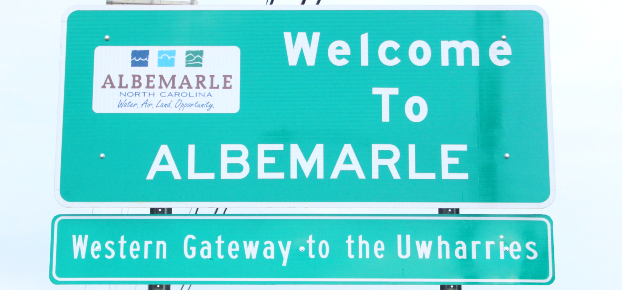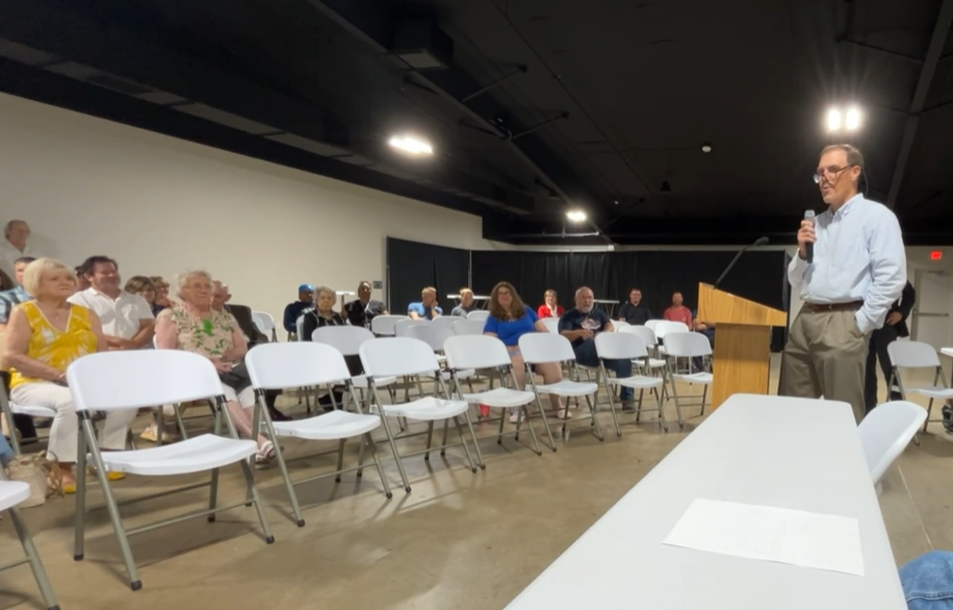Albemarle staff begins developing stormwater program, fees could begin in July
Published 11:35 am Friday, January 28, 2022

- Albemarle, North Carolina
|
Getting your Trinity Audio player ready...
|
Albemarle staff will develop a new stormwater plan and include it as part of the 2022-2023 budget.
This decision was made following a presentation and discussion with officials from both WK Dickson and Raftelis during a lengthy work session City Council had Thursday evening at the E.E. Waddell Community Center.
As a result of ongoing flooding issues, which have gotten worse in recent years, last year the council hired Charlotte-based WK Dickson, a community infrastructure consulting firm, to conduct a comprehensive stormwater management plan. Officials with the company have spoken with council several times over the past year. The goal is for the city to transform stormwater into a public utility like water and sewer.
Trending
In order to learn more about the scale of the problem, Inga Kennedy, public engagement consultant with WK Dickson, spent much of last year canvassing the area, talking with citizens at events such as Food Truck Fridays and the farmers market to hear about their experiences with flooding issues.
She estimates she spoke with at least 1,000 people at the events and was able to get about 150 residents to complete a survey to learn more about their personal experiences with flooding. The majority of respondents said flooding occurred in their yard and that it came from nearby streams or creeks. Kennedy also said she’s talked with residents who have experienced flooding inside of their homes.
According to the survey results, about 70 percent of respondents experienced flooding at least once a year, while about 60 percent experienced property damage from the flooding.
Tom Murray, a stormwater program manager with WK Dickson, spoke to council about the importance of the city becoming more proactive when it comes to managing its stormwater program. This includes replacing aging infrastructure before it gets damaged by heavy rainfall.
“Some of the infrastructure is aging and we need to start planning for the maintenance and replacement of that infrastructure before it fails,” he said.
Murray recommended the city bolster its program by adding several new employees to focus solely on the stormwater program. These include a stormwater manager, administrator and technician along with multiple maintenance crew members.
Trending
Aside from an addition of employees, Murray talked about enhancing the operation and maintenance of the program, including replacing old infrastructure, acquiring needed equipment and other supplies and addressing capital improvements, and mapping the existing infrastructure. A pilot watershed study has already begun to assess the current conditions of the Melchor Branch stream.
Murray estimated it would cost the city about $2.16 million annually to properly manage the stormwater program.
Keith Readling, who works with Charlotte-based management consulting firm Raftelis, spoke about what the fee structure would look like for residents once stormwater becomes a utility. The plan is for residents to be billed based upon what Readling called equivalent residential units (ERUs), which is the amount of impervious surface area on a typical single family property in the city.
He explained that a random sample of 400 residential properties was taken to determine the median impervious surface area of such homes, which was 3,270 square feet. A monthly stormwater fee would be the same for all residential properties, regardless of size.
When talking about the rate for stormwater, Readling recommended an initial rate of $10 a month, though it could change over time.
“You’re dealing with a new service, customers aren’t used to it yet and they’re not sure what they’re getting for their money,” Readling said. “So it’s pretty common that you would try to set a rate that you could hold through for a few years.”
So, for example, if a local business had about 9,300 square feet of impervious surface, that would be roughly three ERUs (9,300 divided by 3,270). When you multiply it by 10, the monthly stormwater rate for the business would be $30.
Readling also talked about the possibility that the city could add leaf collection, which is currently included under solid waste, as a part of the stormwater program. If this happened, the monthly stormwater rate could be increased to $11.50, assuming the rate was $10, but there would be an estimated reduction of about $3 for customers’ solid waste bills.
Stormwater rates can vary by municipality. Harrisburg has a monthly rate of $11.24, according to WK Dickson’s powerpoint, while Kannapolis is much lower at $7.25.
Following much discussion, Mayor Pro Tem Martha Sue Hall made the motion to authorize staff, specifically the public works department, to include a stormwater program as part of the budget they will submit to City Manager Michael Ferris. The motion unanimously passed.
Going forward, there will be several more citizen outreach events and public forums to educate and engage with the community about the topic of stormwater. There will also be a public hearing regarding the implementation of the new program.
Once Council approves the 2023 budget this summer, which would codify the stormwater utility and specific rates, residents should expect stormwater fees included as part of their utility bills as early as July.






